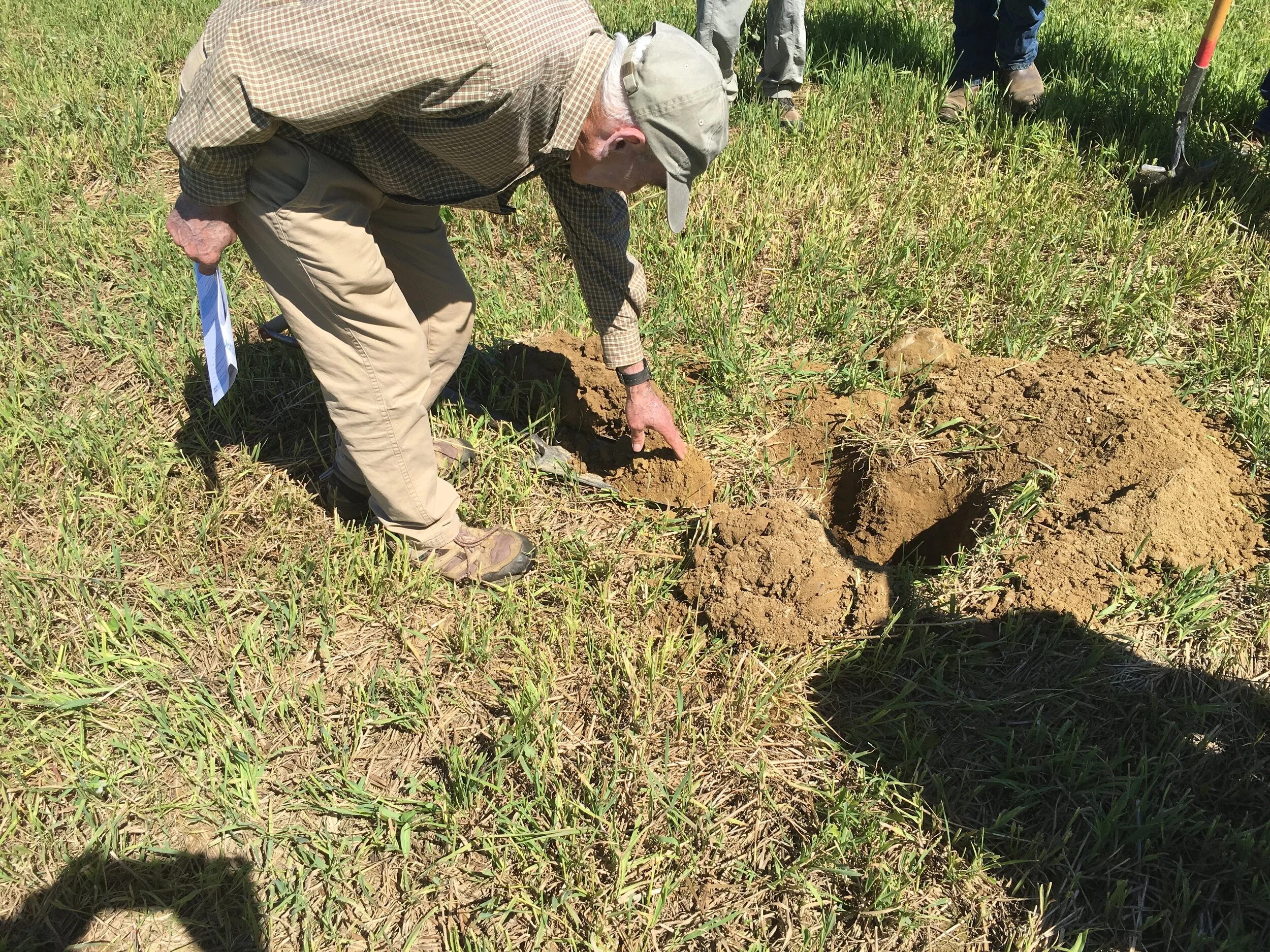Test Your Soil
We have Maine Soil Testing Service containers and information forms!
News: Soil Test Price Increase
Soil test prices have been raised a few dollars as of July 2023. This is the first increase in at least 10 years for most services and for almost 20 years for some services. And, there is still a Winter Discount on Standard Test.
Sample increases:
Standard test $20 (was $18)
Comprehensive test $25 (was $22)
Soil Biological Health $12 (was $10)
High Tunnel packages $25 (was $22)
Additional publications about interpreting test results and more can be found on the Analytical Lab website at http://anlab.umesci.maine.edu/soillab_files/under/index.html.

Testing Your Soil
UMaine Extension Bulletin 2286
What is a soil test?
A routine soil test is a tool to help you manage the mineral nutrition of your growing plants. It is a quick and inexpensive way to check the levels of essential soil nutrients and check for lead contamination. You simply take a sample of your soil and send it to a lab for analysis.
Why test the soil?
Homeowners, farmers, and others often test soil from their gardens, yards, and fields. The soil tests indicate soil pH and the levels of nutrients that are available for plant growth.
The pH of the soil is a measurement of relative acidity. Soils that are too acid are not suitable for many plants. Maine soils tend to be acid.
The amount and balance of nutrients in the soil has an effect on plant growth, too. Low levels slow plant growth. High levels can pollute the environment, or cause nutrient imbalances and stress the plants. A soil test lets you know whether you need to add more nutrients and how much lime and fertilizer, if any, to add. Test results provide information that can save you money and prevent water pollution.
What information does a soil test provide?
The soil test results will tell you
soil pH
levels of potassium (K), phosphorus (P), calcium (Ca), magnesium (Mg), and sulfur (S)
organic matter level
whether there is lead contamination (for health reasons, all soil samples from home gardens and lawns are measured for lead content)
how much lime and fertilizer (organic or chemical) to add
other management tips for growing your crop
How often should I test the soil?
Test your soil at least once every three years. Keep the test results handy so that you can monitor any changes in soil fertility.
You may want to test more often if you have a problem area or if you’ve applied lots of nutrients. Some people test their soil every year to save money on fertilizer, lime, and other soil amendments. How often you test depends on the value of your crop and how closely you manage it.
What time of year should I test my soil?
The results of your soil test give recommendations for the next growing season, so you should test soil well before the growing season, such as in early spring after the frost is out of the soil, or in the fall before the ground freezes. A soil test usually takes two to three weeks (from shipping to the lab to return of results). The results will be the same whether you test in spring or in fall, but with fall sampling, you will get results back in plenty of time for planting.
How do I take a good soil sample?
Get a Maine Soil Testing Service container and information form from your University of Maine Cooperative Extension county office, or from the Maine Soil Testing Lab—call (207) 581-3591 or your Soil & Water Conservation District. Some garden centers may carry them as well.
Use a clean spade, trowel, or soil probe to sample the soil. Take several samples in different spots to fully represent the garden or field. You will want to sample the entire rooting zone depth—usually a depth of 6 to 8 inches for gardens and 3 to 4 inches for sod or turf. Use a clean container to collect and combine all of the samples.
Mix the soil thoroughly and fill the sample container with soil.
Label the container with your name, address, and sample identification (e.g. “garden,” “field,” “lawn”—some way for you to remember where the sample came from).
Fill out the information form, completing all fields that apply to you. If you include your e-mail address, you can have your results e-mailed to you and get them back more quickly.
Send in the top sheet of the information form. Keep the second (carbon) sheet for your records.
Put the sample container(s) and information form, with check or money order, in a mailing container and mail it to the address on the form.
What should I do next?
When you get them back, the results of your soil test will include recommendations on how to improve your soil. To help you understand your results, the Maine Soil Testing Service offers “Interpreting Soil Test Results for Gardens and Grounds.”
If you have any additional questions, contact your UMaine Extension county office. Your county office will automatically receive a copy of your soil test results from the lab, so a specialist or educator in that office can easily go over your results with you over the phone.
Information in this publication is provided purely for educational purposes. No responsibility is assumed for any problems associated with the use of products or services mentioned. No endorsement of products or companies is intended, nor is criticism of unnamed products or companies implied.
© 1994, 2008
Published and distributed in furtherance of Cooperative Extension work, Acts of Congress of May 8 and June 30, 1914, by the University of Maine and the U.S. Department of Agriculture cooperating. Cooperative Extension and other agencies of the USDA provide equal opportunities in programs and employment.
Call 800-287-0274 or TDD 800-287-8957 (in Maine), or 207-581-3188, for information on publications and program offerings from University of Maine Cooperative Extension, or visit extension.umaine.edu.
The University of Maine does not discriminate on the grounds of race, color, religion, sex, sexual orientation, including transgender status and gender expression, national origin, citizenship status, age, disability, genetic information or veteran’s status in employment, education, and all other programs and activities. The following person has been designated to handle inquiries regarding non-discrimination policies: Director, Office of Equal Opportunity, 101 North Stevens Hall, 581-1226.
